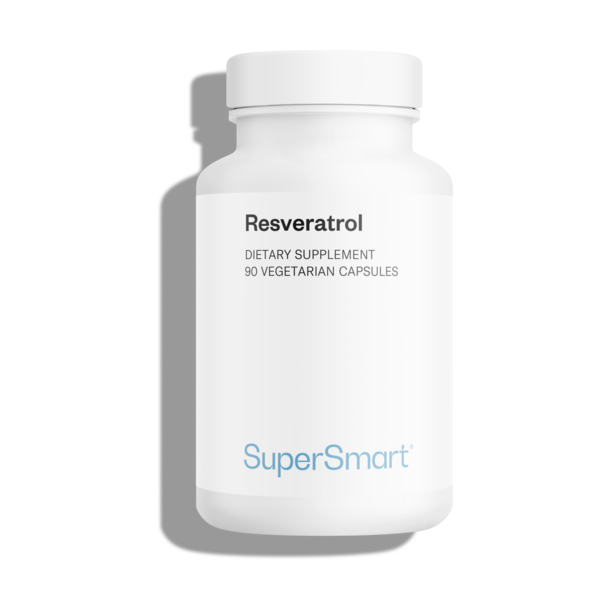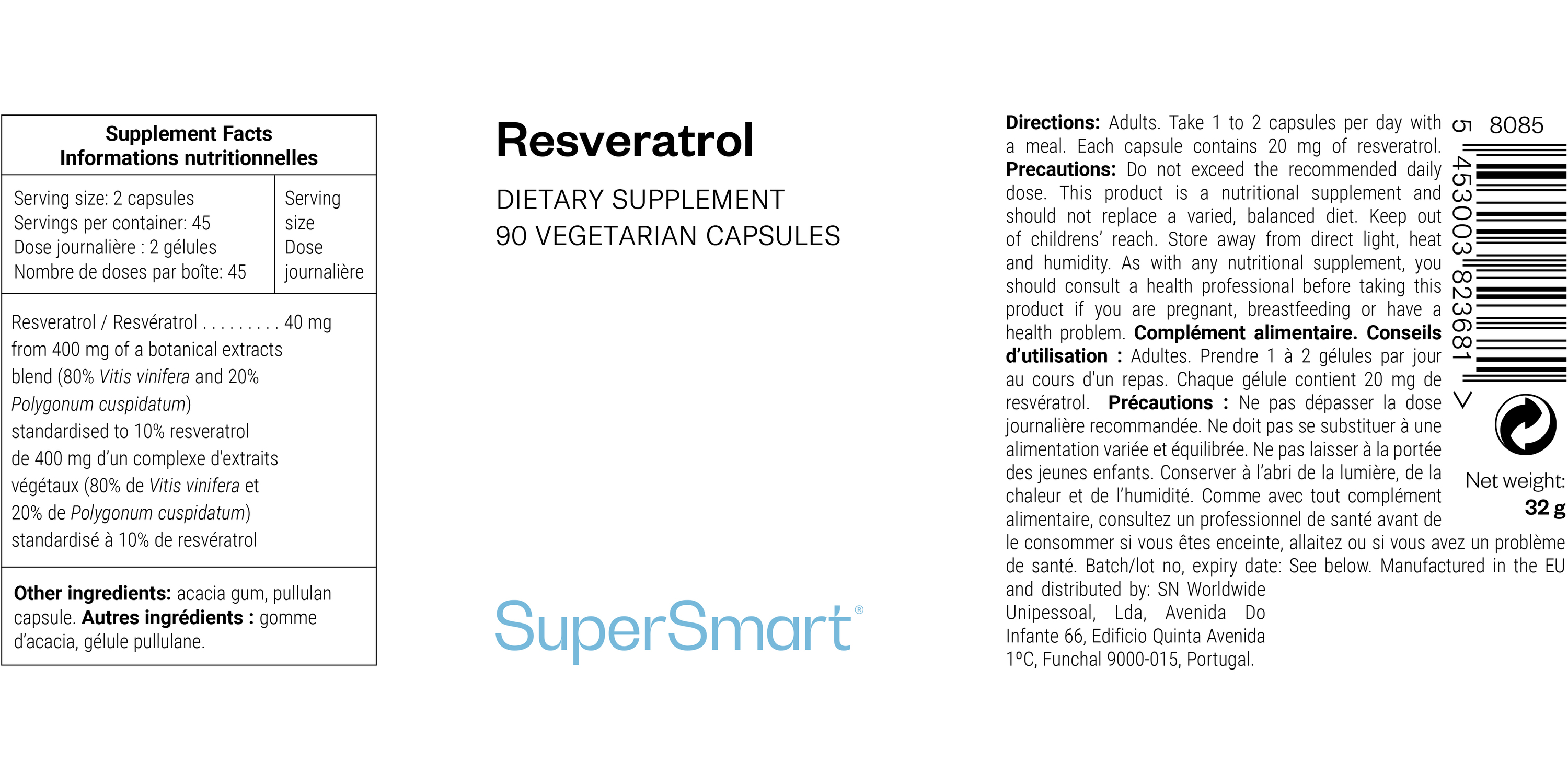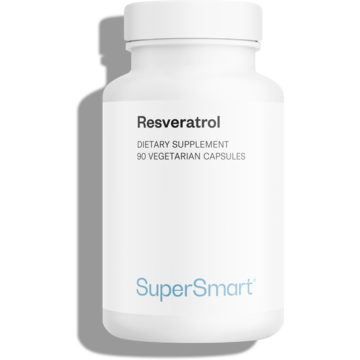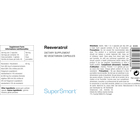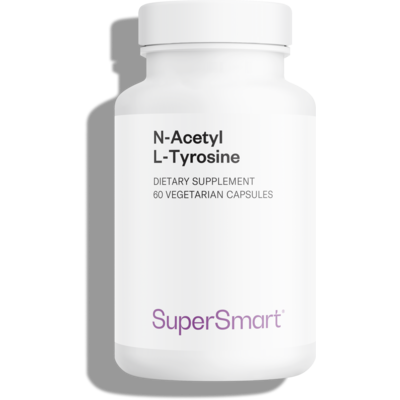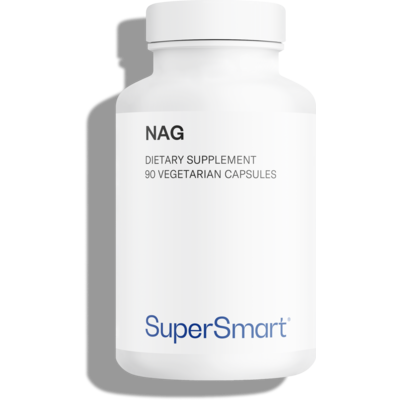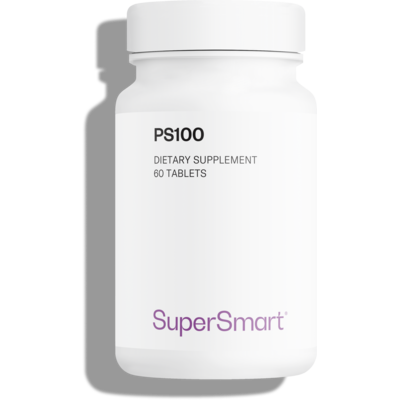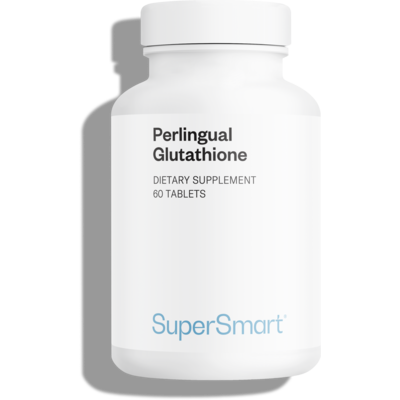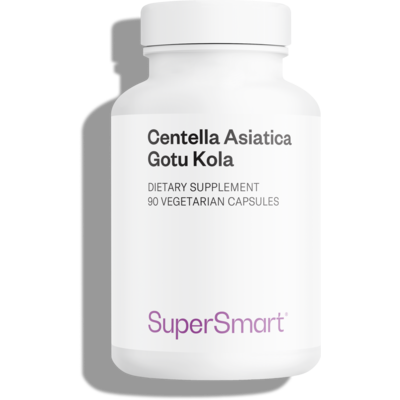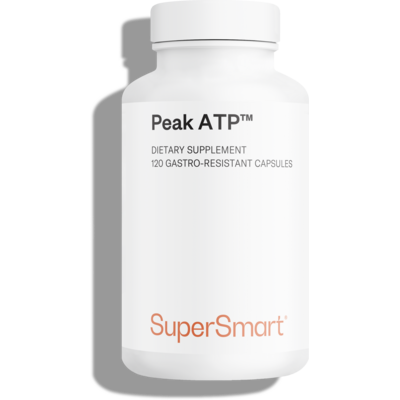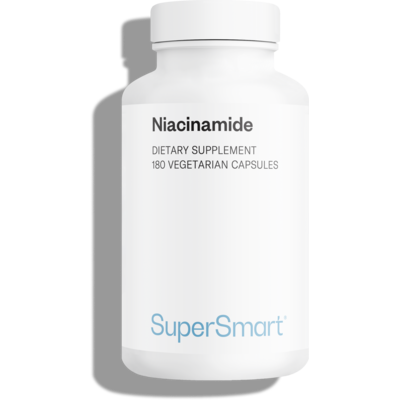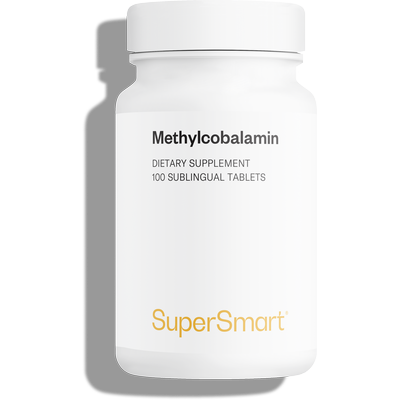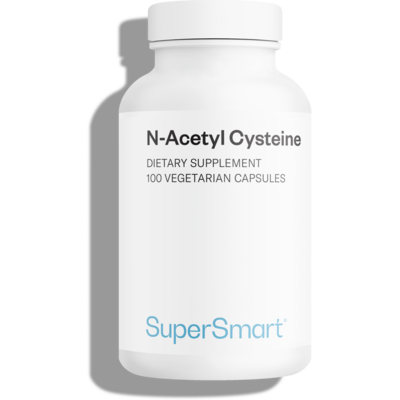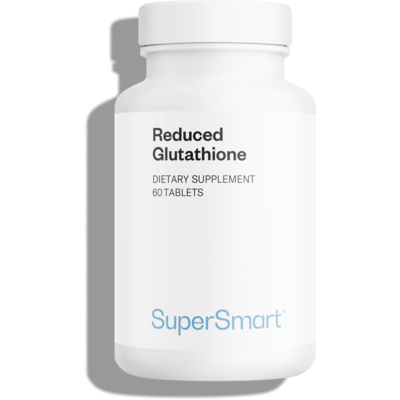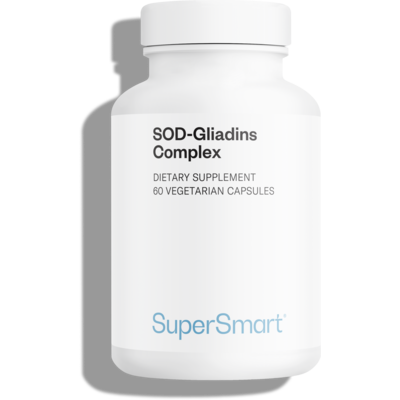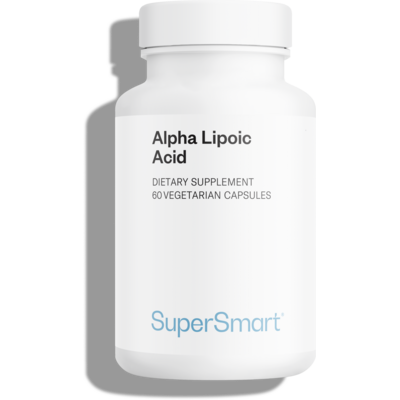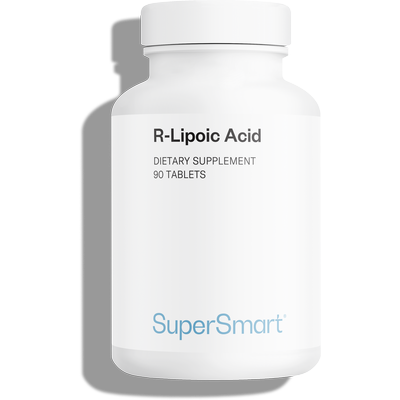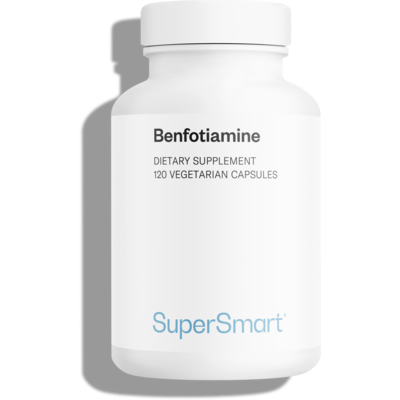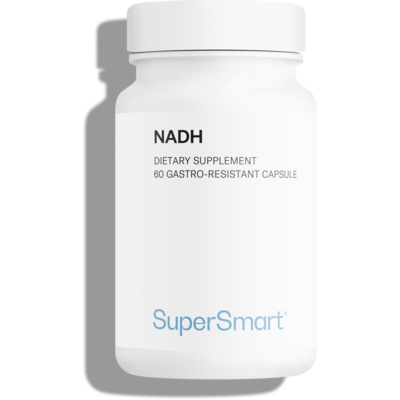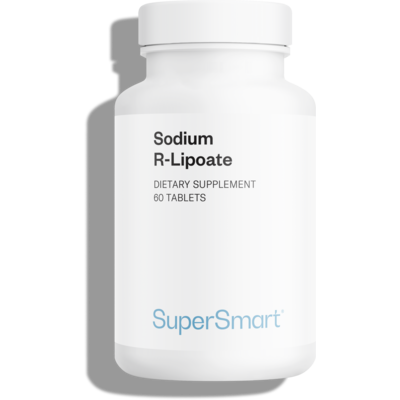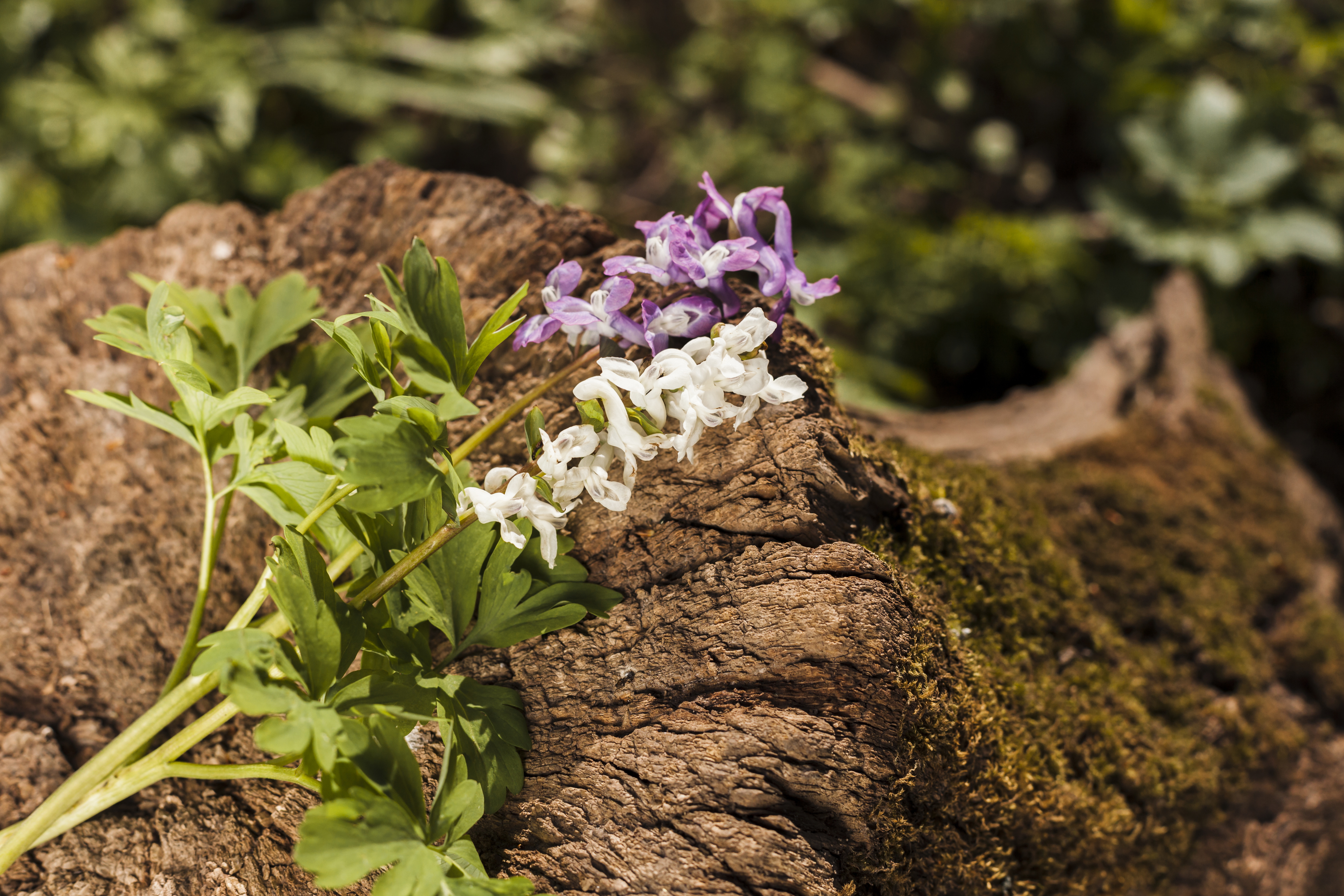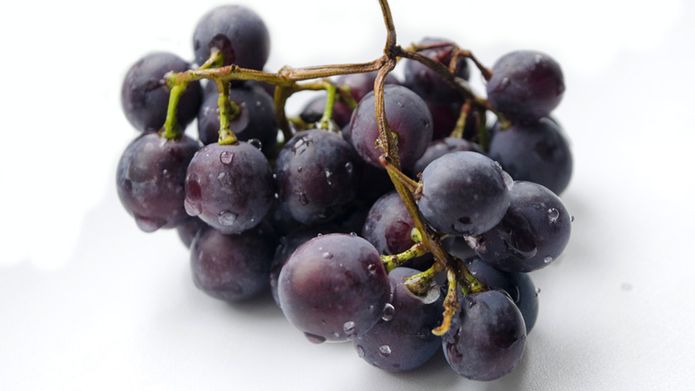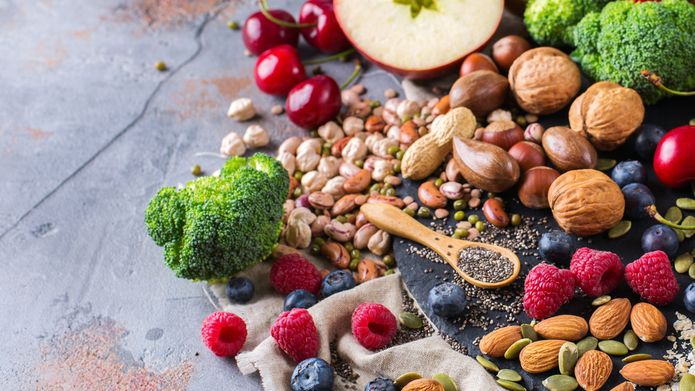Create Your Offer
Resveratrol is a protective compound produced by red grapes (and certain other plants) as a defense against parasites.
What is the Resveratrol Source in our Supplement?
While red wine previously contained 8 to 10 mg resveratrol per liter, there is unfortunately almost no resveratrol in today's red wine due to widespread use of pesticides. We have, however, managed to find a source of pharmaceutical grade resveratrol, extracted directly from organic red grapes, which retains the natural balance of all its active compounds: polyphenols, flavonoids, anthocyanidins, and oligoproanthocyanidins (OPCs).
This is then enriched with resveratrol extracted from the plant Polygonum cuspidatum and standardized to provide 10% resveratrol. It is the most natural and powerful extract available. Resveratrol is without doubt the most effective and best-researched phytonutrient you can take to maintain and protect your health. It is a brilliant solution to many age-related health problems.
What do Studies Show About Resveratrol Benefits?
Many studies have demonstrated that resveratrol is a powerful antioxidant that protects human health through a number of mechanisms. Indeed, research attributes much of the health protection conferred by the famous "French paradox" to resveratrol.
Cardiovascular benefits
- The World Health Organisation suggests that resveratrol single-handedly reduces cardiovascular risk by 40%.
- Resveratrol is more effective than vitamin E, protecting against a wider range of free radicals to prevent oxidation of low-density lipoprotein (LDL).
- It inhibits platelet aggregation by blocking the action of thrombin and several other aggregating factors.
- It promotes production of nitric oxide which relaxes and dilates the arteries.
- It reduces blood triglyceride and cholesterol levels as well as the intrinsic hypertensive agent endothelin-1.
Antioxidant properties
Preliminary studies suggest that resveratrol – administered singly, and in combination with other antioxidants – protects the brain against oxidative stress. Oxidative stress is known to play a major role in most neurodegenerative diseases.
A Chinese study has recently shown that, when injected immediately after injury, resveratrol is effective at protecting against inflammation of the spinal cord, but with additional benefit of antioxidant protection. A study of rats pre-supplemented with resveratrol for 21 days has shown that it improves the prognosis and reduces the permanent effects of stroke.
According to a study at Harvard Medical School, resveratrol activates a longevity gene in certain strains of yeast and extends life expectancy by 70%. It works in the same way as calorie restriction (the only scientifically proven way of increasing longevity) by activating SIR genes. Research to date has been restricted to yeasts, flies and nematodes but it's worth noting that humans also possess these genes.
Evidence from numerous studies confirms that resveratrol offers many preventive effects against premature aging. To benefit from these anti-aging effects, resveratrol can be taken as a supplement on its own or in antioxidant combinations such as in the formulations Resveratrol Synergy and AntiOxidant Synergy.
WARNINGS
Do not exceed the recommended daily dose. This product is a nutritional supplement and should not be used as a substitute for a varied and balanced diet or a healthy lifestyle.
STORAGE
Store in a cool, dry place away from direct sunlight, heat, and humidity. Keep out of reach of children.
PREGNANCY AND MEDICAL CONDITIONS
If you are pregnant, breastfeeding, or have any medical conditions, consult your healthcare provider before using this product.
SUPPLEMENT INTERACTIONS
Consult your healthcare provider before use, especially if you are taking any medications or other supplements as there may be potential interactions.
Need Help?
Phone Number
+1 (786) 522-3907
From 9 am to 6 pm (EST)
Email Address
You May Also Like

